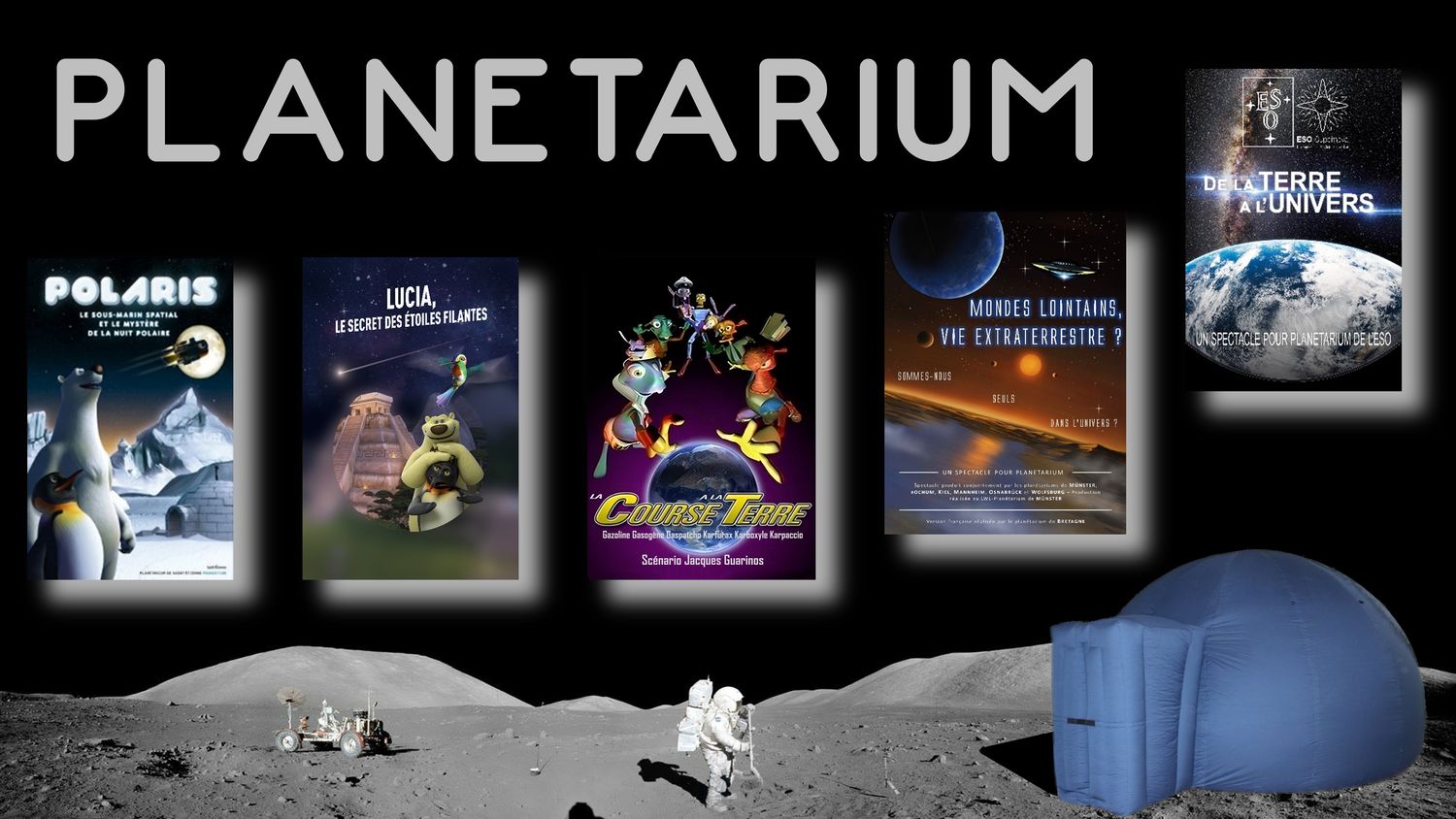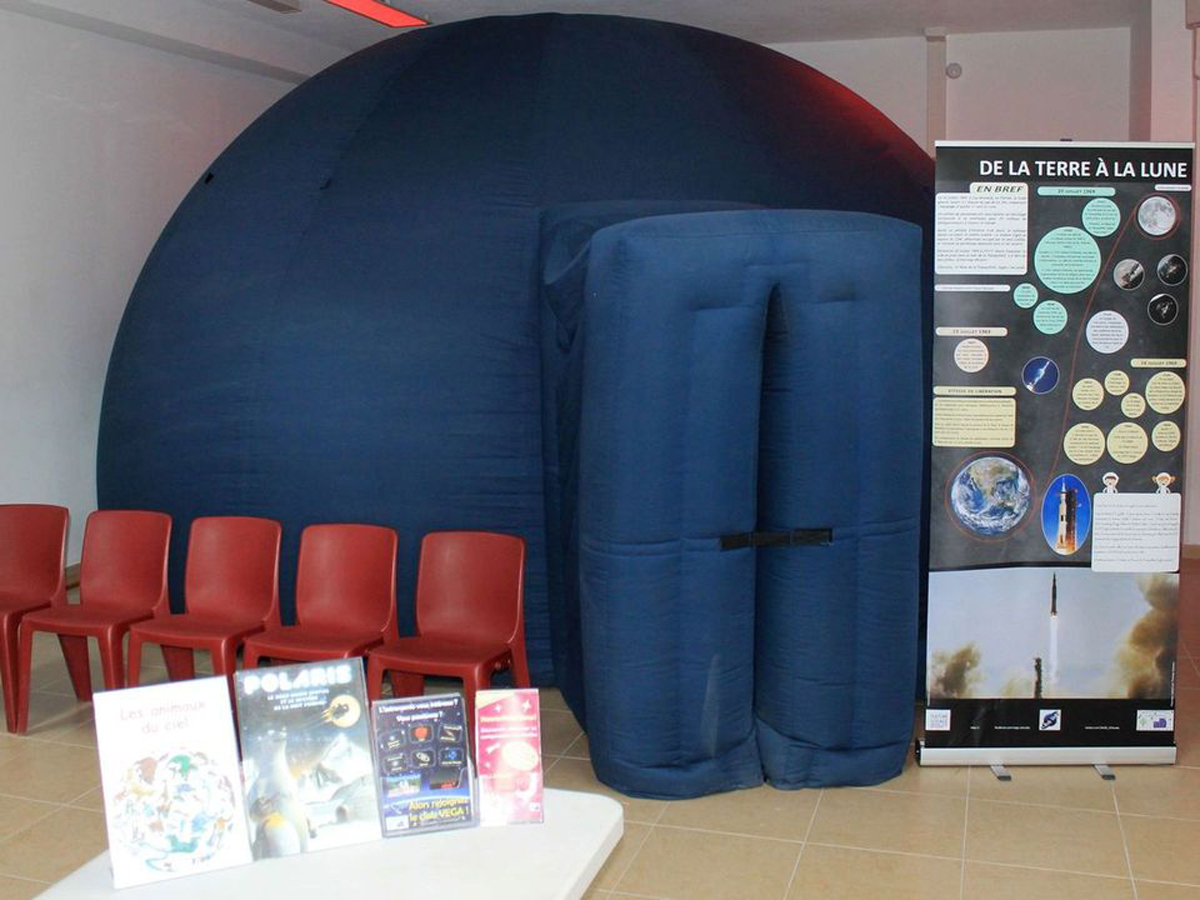Planetarium sessions - Club d'astronomie Véga
Housed in a room in the observatory, the 5m-diameter planetarium can accommodate eighteen people, either seated or lying down. Live commentary is provided by an animator. Programming is available online.

Sunday 9 February 2025. Sessions at 2pm, 3:30pm, 5pm and 6:30pm. Tuesday 11 February 2025. Sessions at 2pm, 3:30pm, 5pm and 6:30pm. Friday 14 February 2025. Sessions at 2pm, 3:30pm, 5pm and 6:30pm. Tuesday 18 February 2025. Sessions at 2pm, 3:30pm, 5pm and 6:30pm. Friday 21 February 2025. Sessions at 2pm, 3:30pm, 5pm and 6:30pm. Saturday 22 February 2025. Sessions at 2pm, 3:30pm, 5pm and 6:30pm.
Price: €6.60 / person (single price). Children up to age 12 must be accompanied by an adult. Activity accessible to PRMs (booking required). Prior booking required with online payment via HelloAsso.
3000 route du Gros Cerveau - 83190 Ollioules
> "Polaris" children's show (ages 5 and up) - duration 60 minutes :
James, a traveling penguin from the South Pole, and Vladimir, a funny bear from the North Pole, meet on the Arctic ice floe. As apprentice astronomers, they wonder why night is so long at both poles of the Earth. An extraordinary scientific adventure takes them from building an observatory to constructing a makeshift spaceship. On a journey around the Earth and on to Mars and Saturn, they'll answer their questions and discover that the planets have things in common, but also differences!
Session content: - "Polaris, the space submarine and the mystery of the polar night" show - Celestial walk through the constellations representing animals.
> "Lucia, the secret of shooting stars" session (ages 5 and up) - duration 60 minutes : After their adventures in the first Polaris episode, James, the traveling penguin from the South Pole, and Vladimir, the funny bear from the North Pole, meet Lucia, a hummingbird who's just as curious as they are. Together, they set off into space to discover the secret of shooting stars and meteorites, the mysterious pebbles that fall to Earth.
Could the answer lie on the Moon? Observing asteroids and comets can undoubtedly help our three heroes in their scientific endeavors. But only if they get on well together!
Session content: - "Lucia, the secret of shooting stars" show
- Interactive discovery of the parts of our solar system where asteroids and comets are found, and the origin of shooting star showers such as the Perseids - Presentation of meteorites outside the planetarium.
> "Distant worlds, extraterrestrial life" session (ages 10 and up) - 60 minutes: The latest space exploration missions have given us the certainty that the planet Mars enjoyed conditions conducive to the appearance of life in the distant past, and that some satellites in the solar system, such as Enceladus around Saturn, have underground oceans that could harbor elementary forms of life.
At the same time, and at much greater distances, we are discovering more and more planets orbiting stars other than the Sun, a number of which bear similarities to our Earth and could also, under certain conditions, offer conditions conducive to life, or even harbor extraterrestrial life.
This show will take stock of what we know today about this research, but will also leave room for dreams as we try to imagine what possible living beings populating these distant worlds might be like...
Photo gallery
-
Display phone number
-
Write to the owner

























